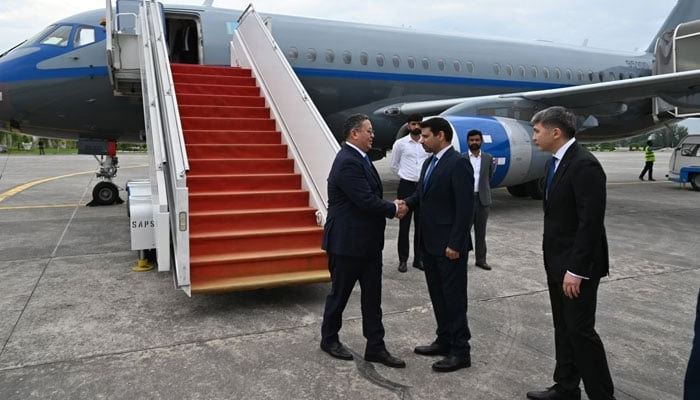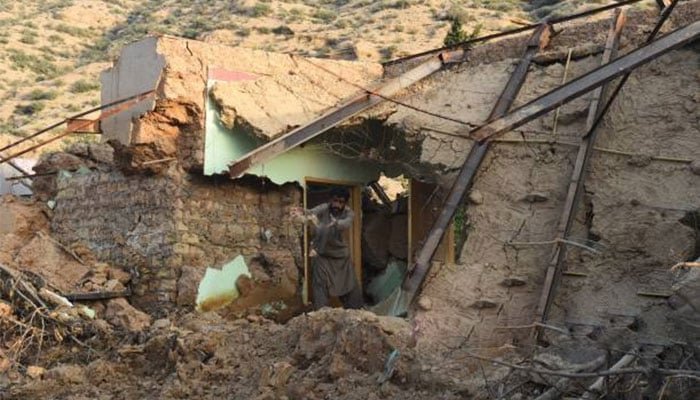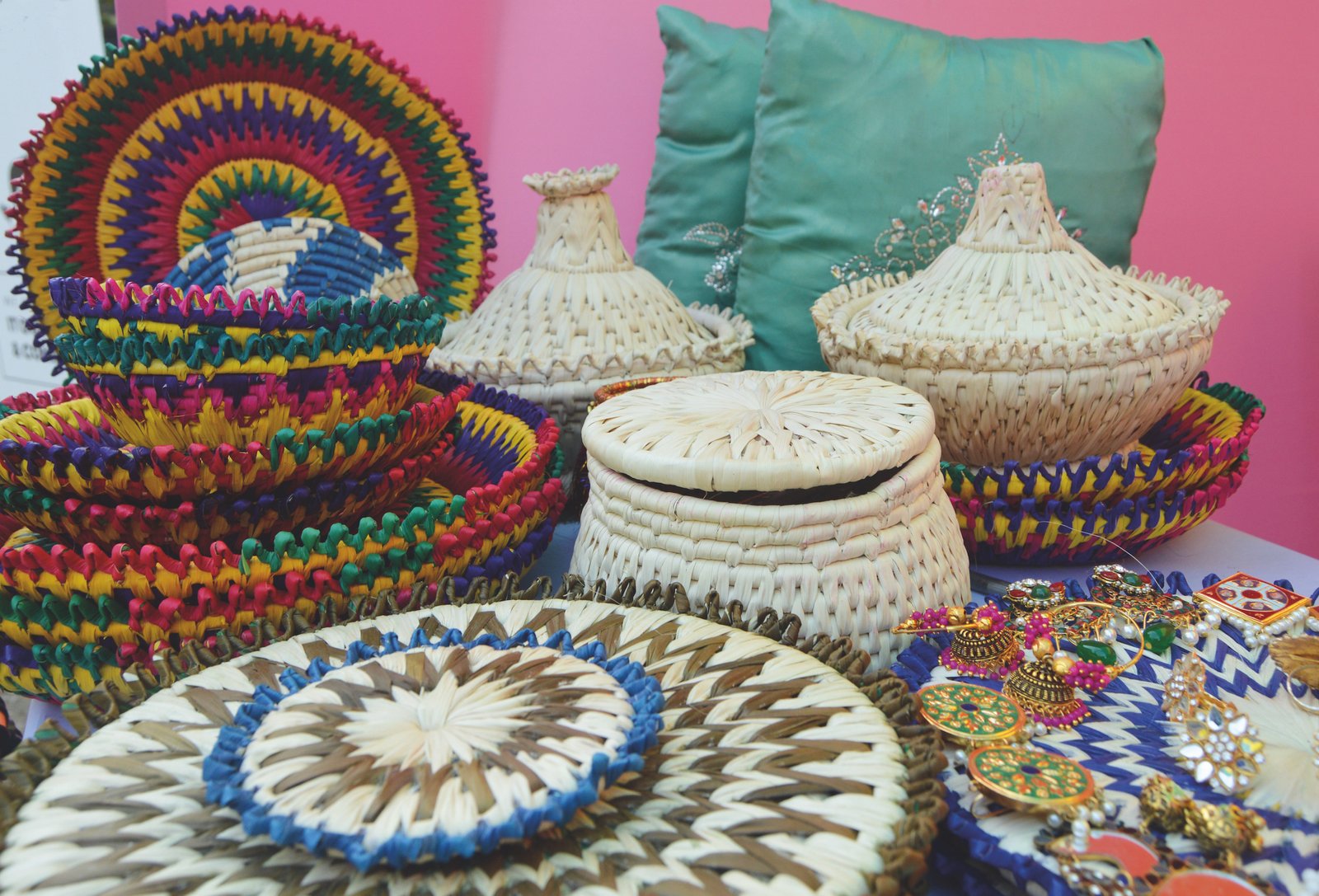Kazakhstan Deputy Prime Minister and Foreign Minister Murat Nurtleu has arrived in Islamabad for a two-day official visit aimed at strengthening Pakistan-Kazakhstan bilateral relations. The visit underscores the growing importance of regional cooperation, economic partnerships, and cultural exchanges between the two countries.
Kazakhstan Deputy Prime Minister’s Arrival in Pakistan
The Kazakhstan Deputy Prime Minister was warmly received at Islamabad Airport by Additional Secretary West Asia Syed Ali Asad Gillani and other senior officials of the Government of Pakistan. He was accompanied by a 13-member high-level delegation, including the Kazakh Minister of Transport. According to the Foreign Office spokesperson, this visit is expected to play a vital role in expanding strategic collaboration in multiple sectors.
Focus on Pakistan-Kazakhstan Bilateral Cooperation
During his stay, Kazakhstan Deputy Prime Minister Murat Nurtleu will hold a one-on-one meeting with Pakistan’s Deputy Prime Minister and Foreign Minister Senator Ishaq Dar. Following this, delegation-level talks will take place where both sides will discuss a broad spectrum of cooperation. These discussions will not only focus on trade and investment but also emphasize collaboration in agriculture, information technology, education, tourism, and cultural exchanges.
In addition, Joint Working Group meetings on Agriculture and IT are scheduled to take place on the sidelines of the visit, highlighting the shared vision of enhancing sectoral cooperation.
Strengthening Trade and Investment Opportunities
One of the primary goals of the Kazakhstan Deputy Prime Minister’s visit to Pakistan is to explore and strengthen trade and investment opportunities. Currently, bilateral trade between Pakistan and Kazakhstan remains modest compared to its potential. According to the State Bank of Pakistan, Pakistan’s exports to Kazakhstan stood at around $48 million in 2023, while imports from Kazakhstan were valued at approximately $18 million.
Both sides are aiming to boost this trade volume significantly in the coming years. Enhanced connectivity projects and regional logistics corridors are expected to pave the way for smoother trade routes, reducing costs and increasing efficiency.
Pakistan-Kazakhstan Cooperation in Agriculture and IT
Agriculture is a key area where Pakistan and Kazakhstan can collaborate effectively. Pakistan, being an agrarian economy, can share expertise in crops, livestock, and irrigation techniques, while Kazakhstan, with its vast land resources, can offer opportunities for joint ventures in food production and supply chains.
Similarly, the IT sector holds great promise. Pakistan’s thriving IT industry, which earned over $2.6 billion in IT exports in 2023, presents an excellent opportunity for Kazakhstan to collaborate on software development, digital infrastructure, and training programs. The Kazakhstan Deputy Prime Minister’s inclusion of IT cooperation in the agenda highlights the growing relevance of technology in bilateral relations.
High-Level Meetings with Pakistani Leadership
During the visit, Kazakhstan Deputy Prime Minister Murat Nurtleu is also expected to call on President Asif Ali Zardari and Prime Minister Shehbaz Sharif. These high-level meetings will provide an opportunity to review preparations for the upcoming Presidential visit from Kazakhstan to Pakistan. The leadership of both nations is keen to ensure that bilateral ties expand across diverse fields and result in tangible benefits for their people.
Regional Connectivity and Strategic Importance
Pakistan’s geographical position offers Kazakhstan an important gateway to South Asia, the Middle East, and beyond. By enhancing regional connectivity, both nations aim to strengthen their role in the evolving dynamics of Eurasian trade. Logistics, energy, and transportation projects are expected to be at the forefront of this cooperation.
In particular, the development of trans-regional trade corridors, including road and rail linkages, could significantly improve Kazakhstan’s access to global markets through Pakistan’s ports. This aligns with Pakistan’s broader vision of becoming a hub for regional connectivity.
Cultural and Educational Exchanges
Beyond trade and investment, the Kazakhstan Deputy Prime Minister’s visit also places emphasis on cultural, educational, and tourism exchanges. Pakistan and Kazakhstan share deep-rooted historical and cultural connections as part of the broader Central Asian heritage. Promoting people-to-people contacts, academic scholarships, and tourism partnerships can create stronger bonds and foster goodwill between the two nations.
Strengthening Pakistan-Kazakhstan Relations for the Future
The visit of Kazakhstan Deputy Prime Minister Murat Nurtleu to Pakistan comes at a crucial time when both nations are seeking to diversify their partnerships and strengthen cooperation at multilateral forums such as the United Nations, the Organization of Islamic Cooperation (OIC), and the Shanghai Cooperation Organization (SCO).
By focusing on trade, technology, agriculture, culture, and connectivity, this visit has the potential to mark a new chapter in Pakistan-Kazakhstan relations. As both countries deliberate on shared opportunities, the outcomes of this visit are expected to shape future policies and provide mutual benefits for their economies and societies.
The official visit of Kazakhstan Deputy Prime Minister Murat Nurtleu to Pakistan highlights the strong commitment of both countries to deepen their bilateral relations. With discussions covering trade, agriculture, IT, education, cultural exchanges, and regional connectivity, the visit sets the stage for a strengthened partnership. The enhanced Pakistan-Kazakhstan cooperation will not only boost economic growth but also foster long-term regional stability and prosperity.



